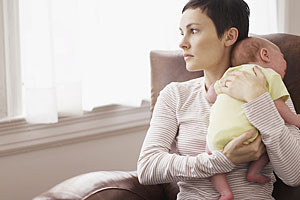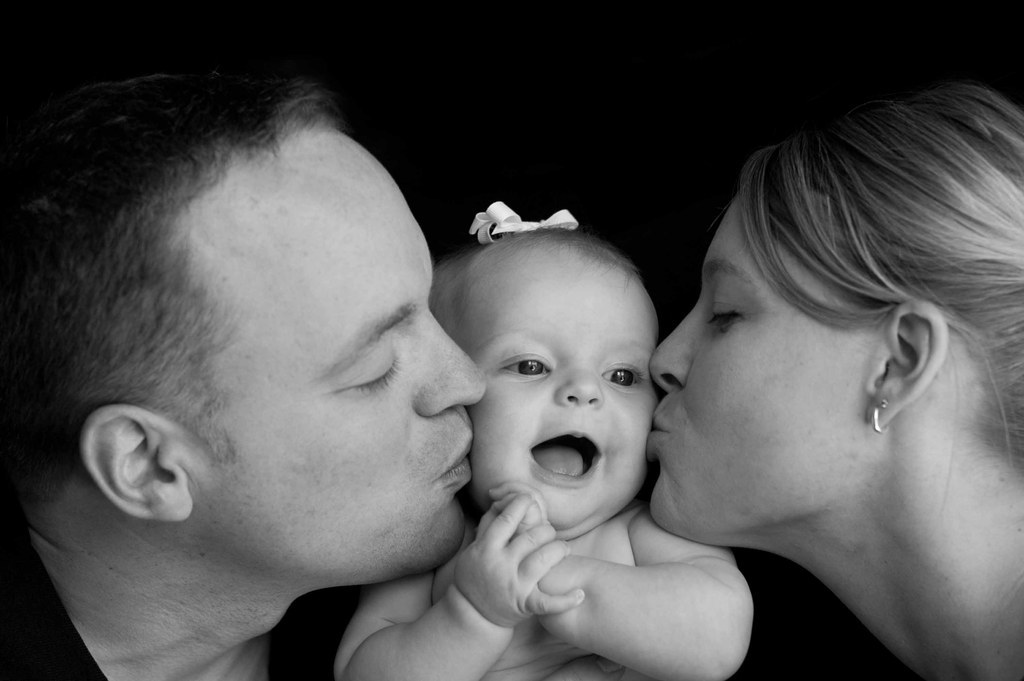Before he or she is even born...

Family Size
Wait…how big your family is can predict how smart you’ll be? Children in a family of five kids generally have lower intelligence scores than only children. However, if Baby #4 is on the way, it doesn’t necessarily mean she will not be smart! There are factors like socioeconomic status and quality of parenting that can offset the trend of bigger families having lower IQs (Beck, 93-94).
Sibling Order
Depending on when your mom had you in comparison to your siblings, your personality will be different! If you are the first born, you are most likely reliable, well behaved, and “the achiever.” If you are the middle child, you are probably good at negotiating and being “the peacekeeper.” And if you are the youngest, you are independent and “the life of the party.” All these are influenced by your interactions with siblings, as well as how your parents “parent” you (more strict with the first child and more lenient with the baby) (Gross, 2013). Keep that in mind whether your first, middle, or last child is on the way!
If mom is depressed, baby might be too

Parents show you the way
Those piano lessons as a kid might actually have paid off! Our brains develop two different ways when we’re young: through experience-expectant brain growth and experience-dependent brain growth. The toys, language, and visuals you surround your baby with enhance everyday, experience-expectant brain growth. The violin lessons and painting classes you signed your preschooler up for bring about experience-dependent brain growth, which exercise different parts of the brain more than others (Berk, 172).
Mommy and Daddy sittin' in a tree...

"Babying" can affect their motor development
Was your mom overprotective when you were an infant learning to walk? In some cultures, like the Gusii of Kenya, young infants are actually discouraged to walk because of dangers like walking into cooking fires. On the other hand, West Indian mothers of Jamaica encourage their babies to walk by frequently standing them up in their laps and “walking” them up their bodies (Berk, 186). All those baby fences and outlet covers were there for a reason, you little daredevil!
The players gonna play, play, play, play, play...
If you ever played family room football or tea party with your father, you know that the primary way that fathers interact with their children is through play. This is a good thing! Studies show that children whose fathers are involved in active parenting like “play” have better verbal skills, intellectual functioning, and achieve more academically in their later years (Oliker, 2011).
Nana & Papa
If your grandparents raised you, you are part of the growing 2.4 million children who are raised in their grandparents’ home. Grandparents can provide love, physical, and emotional care to their grandchildren just as parents do (Berk, 275). This means that whether it was your parents or grandparents who raised your children, they’re going to be just fine either way.
All it takes is one stern look and they know...
How parents discipline their children impact their behavior later on. Authoritative parents, who are highly involved and use disciplinary times as “teaching moments,” are more likely to produce self-controlled, cooperative, high self-esteemed children. Authoritarian parents are the “Do it because I said so!” parents who produce more anxious, defiant, and unhappy children. Permissive parents are just the opposite, the “easy” parents who overindulge by under-controlling and usually have children that are disobedient and impulsive. There are also the uninvolved parents who are indifferent to their child’s behavior, and as a result their children can be more antisocial and less able to regulate emotions (Berk, 399-400). That’s right—maybe all those times learning how to apologize to your sister and cleaning up your mess really did pay off!
As irritating as your siblings can be and as annoying as your parents get sometimes, never forget that they each have played a significant role in who you are today. And you have played a role in their lives, too! So tell them thank you next time you see them, and remember that as parents and caregivers, you too have the power to have a great impact on your children's lives!
Additional Resources
Rosenberg, Jeffrey, Wilcox, Bradford W. (2006). The Importance of Fathers in the Healthy Development of Children. U.S. Department of Health and Human Services. 19-27.
Oliker, Ditta M. (2011). The Importance of Fathers. Psychology Today. 1-9. Retrieved from: https://www.psychologytoday.com/blog/the-long-reach-childhood/201106/the-importance-fathers.
Gross, Gail. (2013). The Achiever, the Peacemaker, and the Life of the Party: How Birth Order Affects Personality. The Huffington Post. Retrieved from: http://www.huffingtonpost.com/dr-gail-gross/how-birth-order-affects-personality_b_4494385.html.

